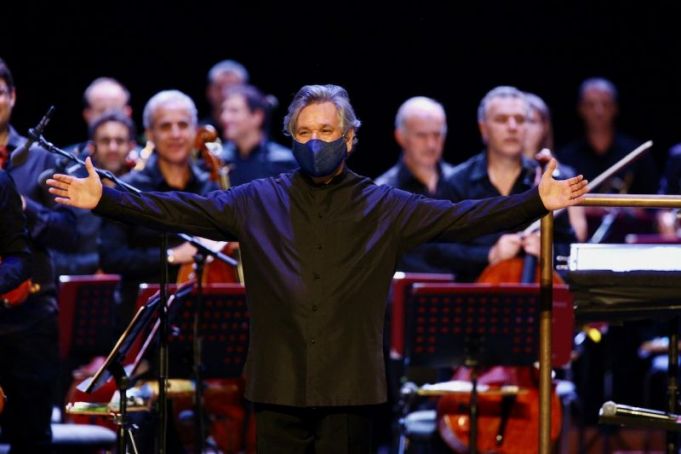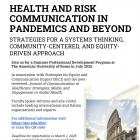Like many other performing arts institutions around the world, Rome’s illustrious Orchestra e Coro dell’Accademia Nazionale di S. Cecilia shut down in early March 2020, cancelling the remainder of the season’s concerts. Live performances resumed in July, with a complete cycle of the Beethoven symphonies conducted by music director Antonio Pappano, in the open air amphitheatre of the Parco della Musica.
Resuming performances indoors during a pandemic was a more difficult challenge, but S. Cecilia brilliantly managed to shape the 2020-2021 symphonic and chamber music seasons, to be held in Renzo Piano’s vast Sala Santa Cecilia. Programmes were planned without intermissions, proper distancing was observed in assigning seats to subscribers, and masks were to be worn by the audience throughout each performance.
The renowned S. Cecilia chorus performs frequently each season, giving the institution one of its most defining characteristics. This season opened on 16 October with Bruckner’s Te Deum, paired with Mahler’s Das Lied von der Erde, again conducted by Pappano. For Bruckner’s work—“splendid and powerful” in the words of Mahler himself—the chorus of some 80 voices was spaced across the entire gallery behind the orchestra, a distancing arrangement which in no measure undermined the unity of the performance. The enthusiastic response of the audience acknowledged the quality of the concert but also felt like a communal celebration of the return to live classical music performance in Rome.

Alas, by the next week, a member of the chorus had tested positive for covid-19, the entire chorus had gone into quarantine, and the second symphonic programme of the season was hastily and skillfully modified to replace the scheduled choral works with other pieces. Another brilliant concert, reinvented in part at the last minute, reminded us of the Italian genius for improvisation and quick problem solving in an emergency.
On 26 October, the latest governmental covid-19 decree to manage the pandemic closed down theatres, cinemas and concert halls all over Italy, until at least 24 November. Voices of protest from prominent cultural figures were heard immediately, underlining the careful attention to safety protocols demonstrated by these institutions and calling into question the utility of their closure. At this stage, it seems impossible to predict when these crucial parts of our cultural life might resume.
Looking ahead in the impressive season of S. Cecilia, two great choral works are scheduled in the coming weeks—Brahms’s Ein Deutsches Requiem in late November and Bach’s Christmas Oratory in mid-December. We can only hope that the course of the pandemic will improve, allowing these works to be performed and heard, together with the many other fine offerings S. Cecilia has announced.
In conclusion, we might recall that S. Cecilia herself, a Roman martyred saint of the third century, demonstrated great courage and tenacity in those distant times. As the European patroness of music for centuries, she witnessed many vicissitudes. Perhaps she can help us emerge from the present crisis.
By Jeffrey Blanchard





















